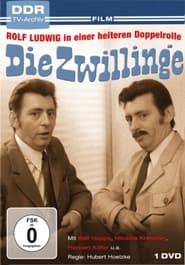detail profile gert g c3 bctschow
Peran Yang Di Mainkan Gert Gütschow
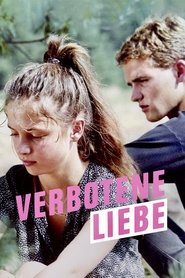 18year old Georg and 13year old...
18year old Georg and 13year old...Forbidden Love 1990
18-year old Georg and 13-year old Barbara have been playing together as children. Play becomes love later, which leads to a catastrophe , as their parents are hostile leading to file a report to the court, as Barbara is still under age.
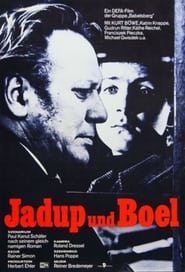 In a small town everyone has...
In a small town everyone has...Jadup and Boel 1988
In a small town, everyone has tried to forget what happened shortly after WWII. That is, until a stranger finds a book that Jadup (Kurt Böwe) gave to the young refugee Boel (Katrin Knappe), who resettled in the town over 30 years ago. Painful memories about Boel and the post-war period begin to surface and shake up the whole town. Boel vanished back then and nobody knew why. Word spread about a rape and some tried to blame a Russian soldier. Jadup, the town's respected and popular mayor, remembers, though, how he mistrusted Boel and did not help her through this difficult time; HE didn't even notice THAT Boel loved him. Jadup's confrontation with the past gives him a new, critical view of his current situation and surroundings.
 At the beginning of the 50s...
At the beginning of the 50s...Bear Ye One Another's Burden... 1988
At the beginning of the 50s, two extremely disparate men meet in a private sanatorium for consumptives: an officer in the People's Police, Josef Heiliger; and a young Protestant curate, Hubertus Koschenz. On account of their consumption, they have to share a room. Initially, this is the only thing they have in common.
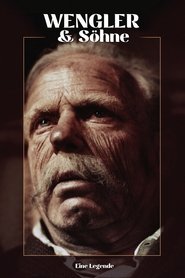 A story spanning three generations from 1871...
A story spanning three generations from 1871...Wengler & Sons 1987
A story spanning three generations, from 1871 to 1945. When Gustav Wengler, a farmer’s son, returns from the Franco-German war in 1871, he goes to work for a precision mechanics and optical company, where he soon becomes a master craftsman. Wengler loyally promises the owner on his deathbed that his sons and grandsons will also stand by the company.
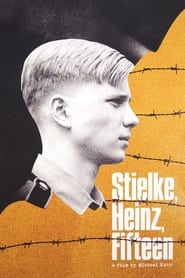 Everything changes for fifteenyearold Heinz Stielke...
Everything changes for fifteenyearold Heinz Stielke...Stielke, Heinz, Fifteen... 1987
Everything changes for fifteen-year-old Heinz Stielke, a fanatical member of the Hitler Youth, when he learns that his father, who died as a war hero, was actually Jewish. Heinz is forced to leave school, loses his friends, and worst of all, his mother dies in a bombing raid. A kind-hearted police officer tries to get him a place at an orphanage in Thuringia, but on the way there, he is picked up by the SS and sent to a training camp.
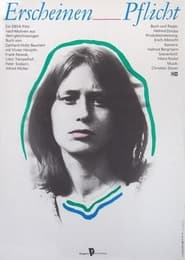 Elizabeth is an openminded young person...
Elizabeth is an openminded young person...Your Presence Is Imperative 1984
Elizabeth is an open-minded young person - curious and unbiased. She is sixteen, goes to secondary school and things are really going well, not least because her father, a Party member, occupies a privileged position. But then the father suddenly dies. Elizabeth feels lonely and abandoned, all the more so because her brother has long since severed all ties with his father.
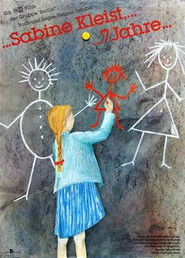 Little Sabine has spent her childhood...
Little Sabine has spent her childhood...Sabine Kleist, Aged Seven 1982
Little Sabine has spent her childhood in an orphanage after her parents died in a car accident. When one of the women in charge at the orphanage, Edith, leaves to have a baby, Sabine runs away, because Edith was the only adult there she could trust. She then wanders through the city to find someone to take her in. She meets a lot of people on her journey, but she seems out of place everywhere she goes until, at last, she realizes that there is a special place where she belongs.
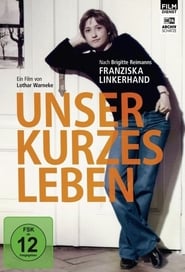 The funloving 26yearold architect Franziska Linkerhand...
The funloving 26yearold architect Franziska Linkerhand...Our Short Life 1981
The fun-loving, 26-year-old architect Franziska Linkerhand (Simone Frost) works for a famous professor. Yet, she feels restrained by her dependence on him and longs to take risks. When her marriage falls apart, she moves to a small town for a fresh start. Franziska approaches her new life with vigor and idealism. Many of her colleagues have given in to the dictates of economic restrictions and prefabricated apartment blocks; but Franziska hangs onto her ideals and, as in her private life, is not willing to compromise…
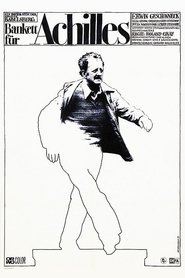 For thirty years Karl Achilles has...
For thirty years Karl Achilles has...Bankett für Achilles 1975
For thirty years, Karl Achilles has been working at the chemical collective in Bitterfeld. But now his last day as a master at the plant has come. He is about to retire; even if Karl, who finds ending his working life difficult, wanted to stay on, it would not be possible. Karl’s colleagues have arranged a farewell dinner for the retiring master at an outdoor restaurant. But on his last day of work, before the farewell dinner, he meets all sorts of people: both colleagues and people, who do not work at the plant. A mosaic of the biography of a person who found fulfilment in his work and now has to look for the meaning of his life anew.
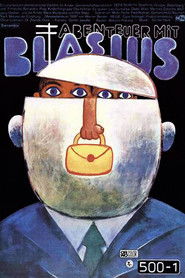 Tenyearold Frantisek is traveling to Leipzig...
Tenyearold Frantisek is traveling to Leipzig...Abenteuer mit Blasius 1975
Ten-year-old Frantisek is traveling to Leipzig to visit his German friend Egon. On the train, he shares the compartment with three men. One of them, the bearded, hefty Blasius is polite but at times acts very confused. At the end station the two boys meet, but they must first of all get rid of Blasius, who lifts them up together with their luggage and carries them away. Leipzig is packed with tourists who have gathered for the famous Fair. The eccentric bearded fellow deals effectively with the traffic jam in front of the station. Blasius's fellow travelers from the train - inventors Prantl and Pirwitz, are at the fairground, boasting of their new invention and claiming it to be the greatest surprise of the entire Fair.
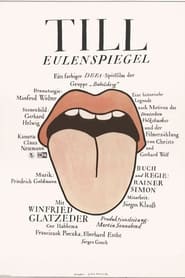 In medieval Germany poor and witty...
In medieval Germany poor and witty...Till Eulenspiegel 1975
In medieval Germany, poor and witty Till Eulenspiegel fools and cheats citizens, churchmen, and landlords. Although in most cases he uses his wit for personal well-being, he often helps the poor and weak. Eventually, he gains an influential but also dangerous position as royal fool at the court of the emperor.
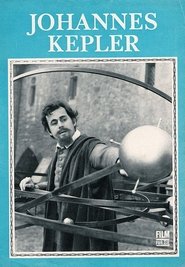 Europe 1620 The wellknown astronomer and mathematician...
Europe 1620 The wellknown astronomer and mathematician...Johannes Kepler 1974
Europe, 1620: The well-known astronomer and mathematician Johannes Kepler, who teaches as a professor in Linz, receives the message that his mother is prosecuted as a witch in Württemberg. The truth behind the allegations is rather simple: His mother has been denunciated by a former friend after an argument with the authorities. Kepler tries desperately to convince the prosecutors of the absurdity of their allegations with rational arguments.
 Uwe Polzin a highly talented biologist...
Uwe Polzin a highly talented biologist...Living With Uwe 1974
Uwe Polzin, a highly talented biologist publicly stands the defence of his doctorate and this crucial day prompts him to look back on his life so far. These reminiscences are not altogether positive and he and his family still face almost unsolvable problems. For; while Ruth, Uwe's sister, consciously goes without family life and private happiness in order to devote herself fully to her vocation as a doctor; he tries to reconcile career and family. He has found in Alla, his wife - an interpreter - not only a truly loving partner but also someone who shares his basic view of life. Still, their marriage is undergoing a crisis. Uwe's job has become so demanding that he expects her to cope with a great deal of domestic problems. Alla senses that her husband is exploiting her love towards him and that he expects her only to make sacrifices for him. This is why she is contemplating divorce.
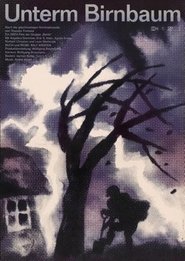 Abel Hradscheck the owner of an...
Abel Hradscheck the owner of an...Unterm Birnbaum 1973
Abel Hradscheck, the owner of an inn in the Oderbruch country, faces financial ruin. For this state of affairs, Ursula, his wife and former actress, is by no means free of blame. She is a "newcomer" to the area and even after eleven years in the area, still a "stranger". A Cracow company announces that a money-collector is on his way to the innkeeper. Mr. Szulski arrives and the debts are settled - with money supposedly stemming from an inheritance. The next day, Szulski departs but according to the maid and the stable-boy, behaves in a very strange manner. Soon afterwards, his carriage is discovered in the Oder River, but there is no trace of the drowned man. Hradscheck's neighbor starts casting suspicion on the innkeeper. The Counselor of Justice, who heads the investigations has the spot under the pear tree dug out. A dead body is exhumed...
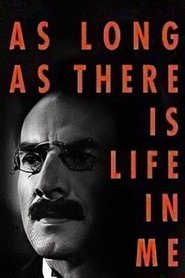 This is part one of a...
This is part one of a...As Long as There’s Life in Me 1965
This is part one of a two-part biopic about Karl Liebknecht. In 1914, Germany is arming itself for war. Karl Liebknecht, left-wing revolutionary Social Democrat, workers’ leader and a virulent antimilitarist, is one among 110 SPD members of Parliament who vote against approving war loans. From then on, he is considered un-German and a traitor to the fatherland, and his own party’s leadership turns against him. Despite threats, Liebknecht speaks up against the war and writes the manifesto “The Main Enemy Is at Home.” Even when he is arrested and charged with treason, he does not surrender.
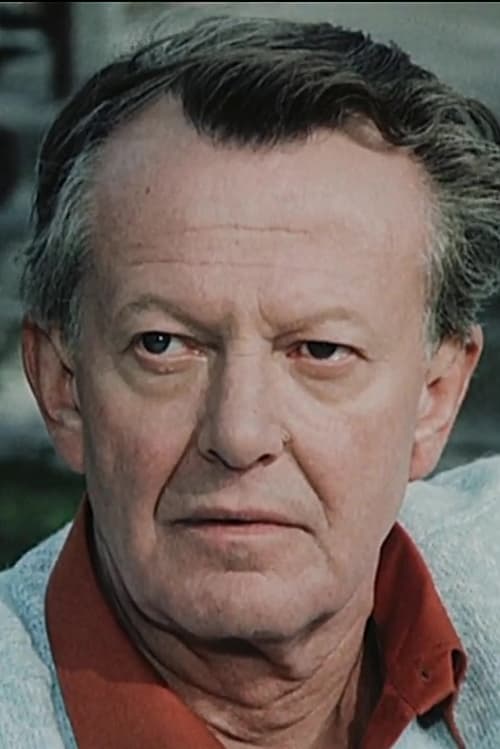
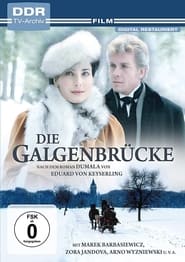
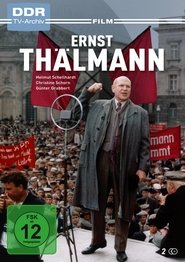
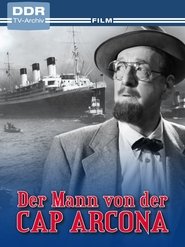 1982 East German actor Erwin Gregorek travels...
1982 East German actor Erwin Gregorek travels...